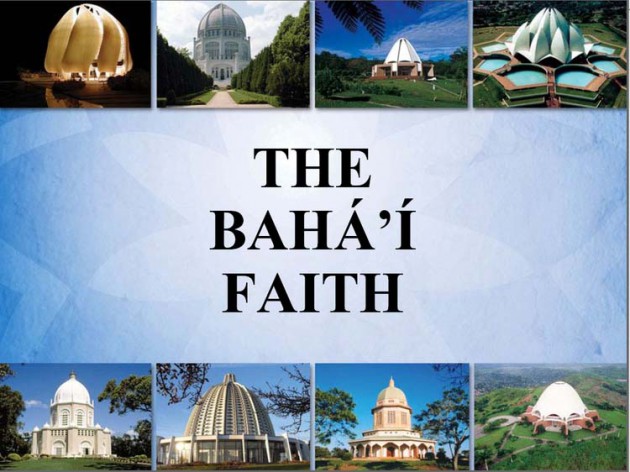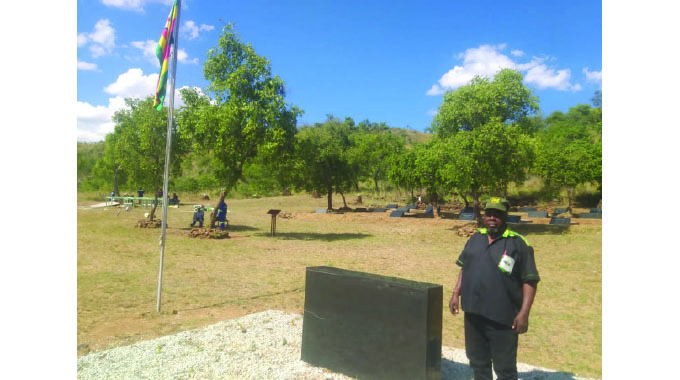Celebrating Bahá’u’lláh’s 199th anniversary

 Flora Teckie: Review Correspondent
Flora Teckie: Review Correspondent
November 2, 2016 is the 199th anniversary of the birth of Bahá’u’lláh, the founder of the Bahá’í Faith. Bahá’ís of Harare will join Bahá’í communities all over the world in celebrating this event. This year’s celebration is a prelude to very special celebrations next year — in tens of thousands of localities all around the world — to mark the bicentenary of Bahá’u’lláh’s birth.Baha’is recognise Baha’u’llah as the divine educator who, as the one promised in the Scriptures of the world’s religions, has come to inaugurate a new age of peace and justice for the entire human race.
Bahá’u’lláh — meaning the “Glory of God” — was born in 1817. From an early age, he showed extraordinary qualities and became renowned for his knowledge and for insight into the difficult passages of Holy Scriptures, although he had not attended any school. It was not his knowledge alone which attracted the people to him.
His loving nature and modesty won the hearts of all who knew him. As he grew up, he became known as the defender of the oppressed and the refuge of the poor. Though he was brought up in riches and comfort, he showed no attachment to the material things around him and gave of his wealth freely to the needy.
In 1863 Bahá’u’lláh announced that he was the bearer of a new revelation from God that would bring unity to the peoples of the world. During His Ministry thousands of verses, letters and books flowed from His pen. These form the Sacred Scriptures of the Bahá’í Faith. From His words, the worldwide Bahá’í community draws its inspiration, discovers its moral bearing and derives creative energy.
In His writings, Bahá’u’lláh outlined a framework for the reconstruction of human society at all levels. His writings cover a vast range of subjects from social issues such as the oneness of humanity, racial integration, the equality of men and women, and disarmament — to those questions that affect the innermost life of the human soul.
While reaffirming the core ethical principles common to all religions, Bahá’u’lláh also revealed new laws and teachings to lay the foundation of a global civilisation.
The central theme of Baha’u’llah’s writings is the principle of the oneness of mankind, as one finds in his writings statements such as these: “The tabernacle of unity hath been raised; regard ye not one another as strangers.””Consort with the followers of all religions in a spirit of friendliness and fellowship.”
“Close your eyes to racial differences, and welcome all with the light of oneness.”
“Ye are the fruits of one tree, and the leaves of one branch”.
In one of its statements entitled “Who is Writing the Future?” the Bahá’í International Community asserts:“The central spiritual issue facing all people, Bahá’u’lláh says, whatever their nation, religion, or ethnic origin, is that of laying the foundations of a global society that can reflect the oneness of human nature.
The unification of the earth’s inhabitants is neither a remote utopian vision nor, ultimately, a matter of choice. It constitutes the next, inescapable stage in the process of social evolution, a stage toward which all the experience of past and present is impelling us.
Until this issue is acknowledged and addressed, none of the ills afflicting our planet will find solutions, because all the essential challenges of the age we have entered are global and universal, not particular or regional”.
Bahá’u’lláh endured forty years of exile, imprisonment, and persecution in order to regenerate the world. He transmuted His tribulations into instruments of redemption and summoned all peoples to the banner of unity. Today, His life and mission are becoming increasingly well-known across the planet and a growing number of people have found in His teachings a vision of a better world.
An important concept in teachings of Bahá’u’lláh is that refinement of one’s inner character and service to humanity should go hand in hand.
For example, Bahá’ís are not only expected to pray and reflect daily in their personal lives, but also to make effort to bring a devotional spirit to their surroundings. They are not only asked to deepen their own knowledge of the Faith, but to share this knowledge also with others. Bahá’u’lláh regards the “love of mankind” and service to its interests as the worthiest and most laudable objects of human endeavour”.
Bahá’ís try to refine their inner-lives in accordance with the teachings of Bahá’u’lláh, while sharing a common goal of serving humanity. Their community is one of learning and action, free from any sense of superiority or claim to exclusive understanding of truth.
It is a community that strives to cultivate hope for the future of humanity, to foster purposeful effort, and to celebrate the endeavours of all those in the world who work to promote unity and alleviate human suffering.
“It is with such thoughts in mind that Bahá’ís enter into collaboration, as their resources permit, with an increasing number of movements, organisations, groups and individuals, establishing partnerships that strive to transform society and further the cause of unity, promote human welfare, and contribute to world solidarity”.
Matter of fact
It has come to our attention that in an article we carried on these pages last week titled, “Latter-Day Saints in empowerment drive”, there were some errors on a few points of doctrine, which authorities have kindly pointed to us. We wish to put on record, upon this advice that: While polygamy existed in the early Church it is strictly forbidden and no members practise it today. It has not been part of the religion for over 120 years. Additionally, there is no discrimination in The Church of Jesus Christ of Latter-Day Saints. All are equal before God, regardless of race, gender etc. We sincerely apologise for any harm or offence our story may have caused to members of the faith.
FACTSHEET
Baha’u’llah
Religious Figure
Born: 12 November 1817
Died: 29 May 1892
Birthplace: Tehran, Persia(now Iran)
Best known as: The central figure of the Baha’i faith
Name at birth: Mirza Husayn-’Ali-i-Nuri
In 1844, Syyid Ali-Muhammad broke from mainstream Islam, called himself the Bab (“the gate”) and prophesied the coming of a man who would be the “Manifestation of God.”
The Bab and his followers, being seen as a threat to official Islam, were persecuted and jailed, and the Bab was executed in 1850.
Mirza Husayn Ali-i-Nuri, a member of a wealthy Persian family and a follower of the Bab, was among those imprisoned and then exiled to neighbouring Iraq. In 1863 he claimed the title of Baha’u’llah and said he was the messenger from God the Bab had talked about.
The Baha’i religion grew slowly at first, embracing world unity and many of the basic tenets of other major religions, using the teachings and revelations of Baha’u’llah in the holy books the Kitab-i-Aqdas and the Kitab-i-Iqan.
In the 20th century the Baha’i faith grew to be an international organisation with 5 000 000 members. — Source: Factmonster.
For feedback please contact:[email protected] or [email protected]







Comments